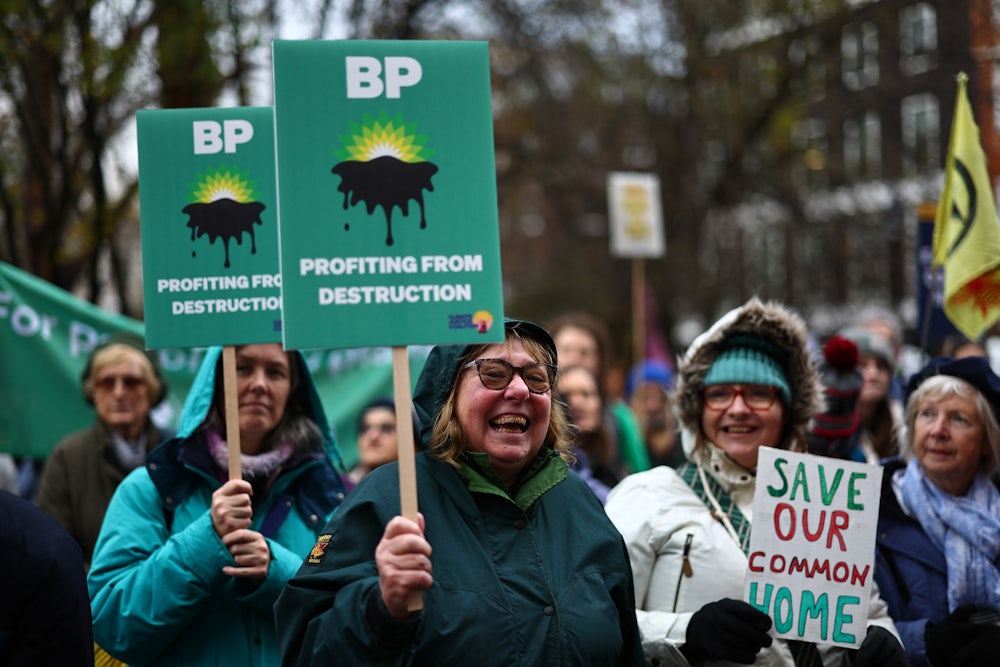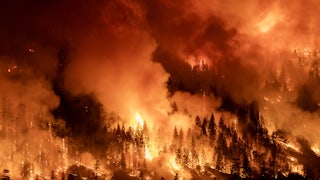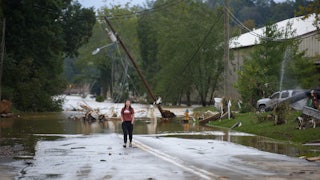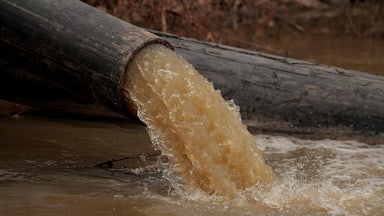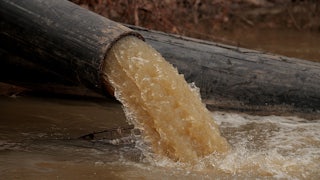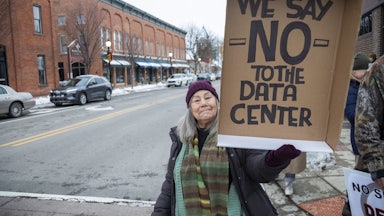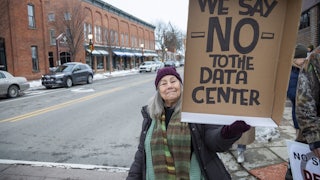For years, a group called the Manufacturers’ Accountability Project has defended Exxon, BP, Shell, ConocoPhillips, Chevron, and others against lawsuits seeking to hold the oil and gas industry liable for deceiving the public about climate change and make it pay for damages associated with a warmer climate. The group has issued dozens of press statements attacking the lawsuits, been quoted in mainstream media, and hassled organizers of legal conferences—all the while claiming to be advocating for “American families and businesses.” This summer, the group’s special counsel helped write an amicus brief urging the U.S. Supreme Court to strike down climate litigation as unconstitutional.
But the Manufacturers’ Accountability Project, also known as MAP, has a powerful industry backer that it hasn’t made public. The group has quietly received $550,000 from the American subsidiary of the oil and gas producer BP.
“For decades, Big Oil has deployed an armada of phony front groups flush with dark money in order to influence the courts, public opinion, and policymakers to protect its polluting products and lock in a future dependent on fossil fuels,” Senator Sheldon Whitehouse, chairman of the Budget Committee, said in a statement sent to The New Republic. “BP’s covert funding of the Manufacturers’ Accountability Project,” he added, “represents an effort to interfere with cities and states seeking accountability from oil and gas companies, including BP, for the escalating costs of climate-driven disasters.”
The funding figures come from “confidential” corporate records that were gathered via subpoena by House and Senate Democrats conducting a multiyear investigation into Big Oil’s obstruction of climate action. The documents detailing MAP’s funding—including a budget document and an email from a top BP America executive describing an initiative called “Defend BP”—were released among thousands of other industry documents in April, but haven’t been reported on until now.
Neither BP America nor MAP responded to detailed questions about the contributions. Reuters reported on Monday that BP has quietly discarded its 2020 goal of cutting fossil fuel output by 40 percent by 2030 as part of a green energy transition—and is now looking to “boost its oil and gas output,” according to internal sources.
MAP has always been open about the fact that it was created by a trade lobby group called the National Association of Manufacturers, or NAM. During the 1990s, NAM helped lead a prominent denial organization called the Global Climate Coalition, and it currently represents oil and gas producers along with automakers and many other industrial companies.
But the BP documents are the first evidence of an oil and gas producer directly financing MAP, a group whose stated goal is to “bring attention to and push back on” more than two dozen lawsuits accusing the industry of spreading doubt about the existence of global temperature rise. “It’s very rare to find out who’s actually funding one of these things,” Kert Davies, director of special investigations at the Center of Climate Integrity, told me. “The reason why this group exists is to do the oil and gas industry’s business without the companies’ logos directly attached to the effort.”
A 2018 email sent by then–BP America chairman and president Susan Dio to another company executive describes a $5 million “Defend BP” initiative that provides “the ability to quickly defend the company’s reputation and license to operate.” Dio added that “the funding will be available for use at the discretion of the Chairman and President of BP America.”
The email exchange, marked “confidential,” contains examples for 2018: “US Coast Guard Museum ($200K), Kuwait America Foundation ($150K), Atlantic Council Dick Morningstar Chair ($100k), Washington, DC Methane Event (S65K).” The U.S. Coast Guard and Kuwait-America Foundation didn’t respond to my requests for comment, while a spokesperson for the Atlantic Council wrote in an email that “the Council had no involvement in the ‘Defend BP’ initiative.”
The email from BP’s Dio also noted a $250,000 contribution to the “NAM MAP project,” shorthand for the Manufacturer’s Accountability Project. A separate 2019 budget document that was also marked “confidential” describes a seemingly related initiative at BP America that “advocates and promotes group campaigns through many avenues.” In a section labeled “litigation support,” it notes $300,000 in additional funding for MAP.
Lawsuits against BP and other oil companies have proliferated in recent years. These cases scrutinize Big Oil’s support over the years for climate denial organizations such as the Heartland Institute and the Heritage Foundation (the lead group behind Project 2025), as well as ongoing efforts to block legislative action that could address the climate emergency. The lawsuits are seeking billions of dollars from fossil fuel companies to help pay for escalating climate disasters, including unprecedented wildfires and rising sea levels.
The U.S. Supreme Court in 2022 made a ruling allowing a climate lawsuit filed by Honolulu to move forward in Hawaii’s state court. But that is currently being appealed by BP and other companies named in the litigation. The companies’ fight to dismiss the Honolulu case is being aided by the Republican Attorneys General Association, as well as an advocacy network led by Leonard Leo, the prominent conservative legal operative and current chairman of the Federalist Society. This summer, Manufacturer’s Accountability Project special counsel Phil Goldberg urged the Supreme Court to “examine the constitutional validity” of the Hawaii suit and climate change litigation in general.
The full-court press from industry-backed groups like MAP and prominent conservative organizations shows how much is at stake for companies such as BP, said Robert Percival, director of the environmental law program at the University of Maryland. “The last thing they want is a trial where their past disinformation campaigns are going to be revealed in great detail,” he told me. “That would certainly hurt their image with the public.”
In recent years, MAP has successfully gotten its message into such mainstream forums as a panel discussion at Georgetown University’s McDonough School of Business; MAP’s Phil Goldberg is regularly quoted in news write-ups from Politico’s E&E News. In early October, Goldberg appeared on a podcast in order to discuss “why these lawsuits drive up energy costs and hurt innovation.” The podcast was hosted by the Pacific Research Institute, a California think tank that has received millions of dollars over the years from Exxon and foundations linked to Koch Industries. As recently as 2011, it was publicly questioning whether human-caused climate change is real.
